The conservative Republican leader of the state House of Representatives wants a bill to become law so badly, he tied it to billions of dollars in public school funding. The Democrats in his chamber call the legislation an unprecedented attack on public education.
Now it's coming up for its first hearing in the state Senate; the chamber's education committee will consider it on Tuesday morning.
We've heard the talking points about House Bill 7055, the major priority of House Speaker Richard Corcoran: It creates a new voucher for public school students who are bullied and a scholarship for struggling readers. It threatens the existence of teachers' unions. It makes it harder to close charter schools.
But what's in the rest of the bill's nearly 200 pages? We read and analyzed it so you don’t have to. Here’s WLRN’s guide to the omnibus education legislation that has dominated the conversation in the state Capitol during the 2018 legislative session.
MAJOR PROVISIONS WORTH WATCHING:
The “Hope Scholarship”
In short: Creates a new tax-credit voucher for students who are bullied, covering transportation to other public schools or tuition at private schools.
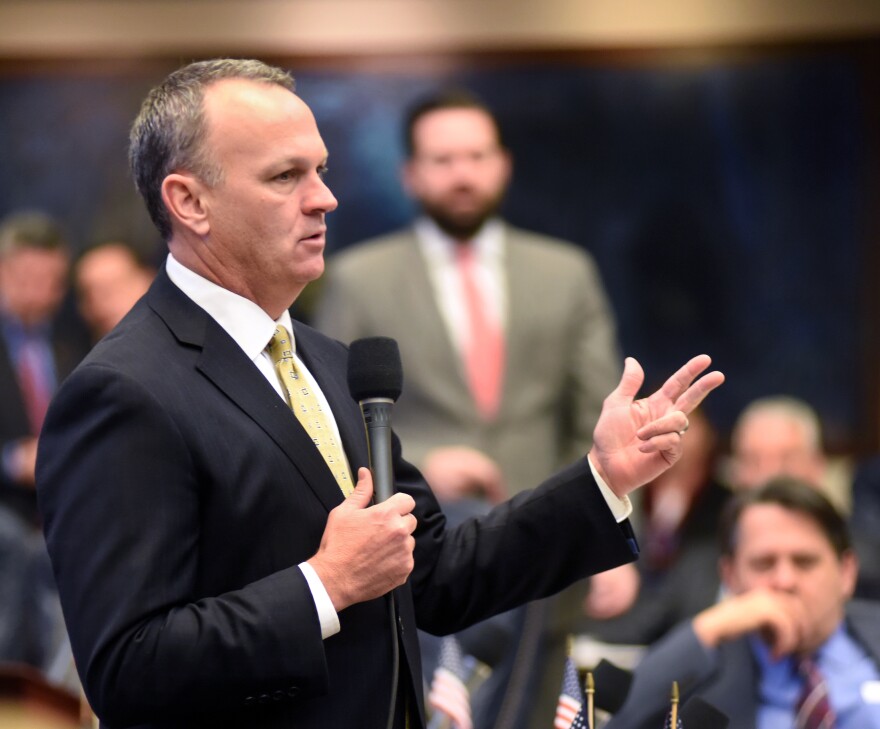
In detail: When people buy cars and register them, they pay taxes. Under the new program, motorists would have the option to donate $105 to a scholarship-funding organization that would dole out the awards to students rather than pay taxes to the state.
(Technically, drivers would be paying the $105 to car dealers, and then the dealers would claim the tax credit when paying taxes to the state. The bill lays out strict penalties for dealers if they steal the scholarship money rather than donating it, including a possible first-degree felony charge depending on the amount of money stolen.)
Purchasers of heavy trucks, tractor trailers and motorcycles would not be eligible.
Motorists would not be able to designate specific students to support with their contributions.
The scholarships would be awarded on a first-come, first-served basis. Students who have experienced “battery; harassment; hazing; bullying; kidnapping; physical attack; sexual offenses, harassment, assault or battery; threat or intimidation; or fighting at school” would be eligible. That includes bullying experienced at school-sponsored programs or activities, while riding on the school bus or waiting at the bus stop. In 2015-16, more than 45,000 public school students in Florida reported these types of incidents, according to an analysis by House staff.
Students would have to report the bullying incidents to their schools. Under the bill, school districts would have 15 days after an incident was reported to notify parents they were eligible for a “Hope Scholarship,” subject to available funding.
Parents whose bullied children wish to transfer to a public school in another district would get $750 to cover transportation costs. For parents who want to enroll their children in private schools, the scholarship amounts would be based on the state’s per-student funding levels for public schools: The awards would be 88 percent of per-student funding for students in kindergarten through fifth grade, 92 percent for those in grades six through eight, and 96 percent for high schoolers. This year, that would range from about $6,300 to $6,900.
Students would be eligible to continue receiving “Hope Scholarships” until they return to any public school or graduate high school, whichever comes first.
The bill would direct the state Department of Education to evaluate the climate of any school from which 10 or more students transferred because of bullying.
Where to find it: Lines 378-418 and 2096-2506
What they’re saying: “No one wants to see a child suffer from any type of abuse. We also don’t want that pain to limit the child’s ability to reach for the stars and realize their dreams.” - Corcoran, a Republican from Pasco County who is expected to run for governor, on Twitter
“When you continue to drain resources from one educational system to build another, you are framing a deceitful premise. And you are creating a false choice and a fraudulent narrative.” -Rep. Shevrin Jones, Democrat from West Park
Our analysis: The new voucher program is Corcoran’s chief priority and highly likely to pass. If history is any guide, lawmakers will expand eligibility and increase funding for it in future years.
The “Hope Scholarship” is funded by private individuals making donations that are incentivized by dollar-for-dollar tax credits. That’s similar to the state’s largest and longest-running voucher program, the Florida Tax Credit Scholarship, which was begun by former Gov. Jeb Bush in 2001. In that case, it’s corporations who get the tax credit — currently up to $700 million total annually.
These types of vouchers get around constitutional provisions that prohibit public funding from going to religious schools, because the money never touches the state treasury. Rather, it’s forfeited by the government. Critics argue these policies divert funding away from public schools, because the money would otherwise become general revenue that could be used for education or other government-funded programs.
The price tag: At least $41.5 million in forfeited tax revenue, according to a staff analysis, plus $2 million for the state Department of Education to implement it.
This is the story of Gant Lee. Gant now excels academically and is esteemed by his peers and teachers. This is the future the Hope Scholarship promises to make accessible to all victims of bullying. Watch the rest of his story here: https://t.co/EP9RraNBig #sayfie pic.twitter.com/ZqMlevCKpc
— FL GOP Majority (@FLGOPMajority) February 7, 2018
Reading scholarship accounts
In short: Creates new state-funded educational accounts for third, fourth and fifth graders who have failed state literacy exams.
In detail: Students who fail third or fourth grade state reading tests would be eligible for a scholarship on a first-come, first-served basis. The scholarships could be used to pay for curriculum, which is defined as a complete course of study — including online. Parents could also use the money to pay for other instructional materials, part-time tutoring, after-school and summer education programs and medical services such as behavioral, occupational, physical or speech therapy. They could also purchase a college savings account.
The bill says the amounts of the scholarships would be specified in the budget. They would not constitute taxable income.
Where to find it: Lines 2509-2643
Our analysis: Third-grade reading tests are high stakes in Florida: the law requires students to be “retained,” or held back, in third grade if they can’t pass the exams, with some exceptions. The policy ending so-called “social promotion” was the cornerstone of Bush’s education legacy and has been upheld despite legal challenges. Also, state law mandates an extra hour per day of reading instruction in the 300 lowest-performing elementary schools. This would be another in a long list of state policies designed to remediate struggling readers.
The reading scholarship proposal isn’t a voucher — yet. The allowable uses don’t include private school tuition, so parents could spend the money on extra help outside of school but not on switching students to a new school altogether. Again, historically, each of Florida’s voucher programs has begun by targeting a small group of students with a relatively small amount of money. Then, lawmakers have expanded them over time, so it’s possible this is the seed of a new voucher program.
The price tag: $9.7 million, plus a $300,000 administrative fee for the scholarship-funding organizations (the primary one is Step Up For Students).
Current situation: greeting our state legislators as they prepare to discuss this dirty bill. #SaveOurSchools #Dirty7055 #Resist pic.twitter.com/tTKNuJxwDD
— Karla Hernandez-Mats (@KarlaMats) February 7, 2018
A target on teachers’ unions
In short: Threatens the existence of teachers’ unions that don't have a high proportion of dues-paying members.
In detail: Unions have to renew their registration with the state every year. Under the bill, collective bargaining units that represent instructional personnel (i.e. teachers' unions) renewing their registration would have to report to the state how many people are eligible to be members, and how many are actually dues-paying members. If fewer than half of eligible teachers are dues-paying members, then unions would have to reapply for certification — endangering their chances of retaining the rights to represent those workers. If unions don’t comply with the requirement, their certification would be revoked automatically.
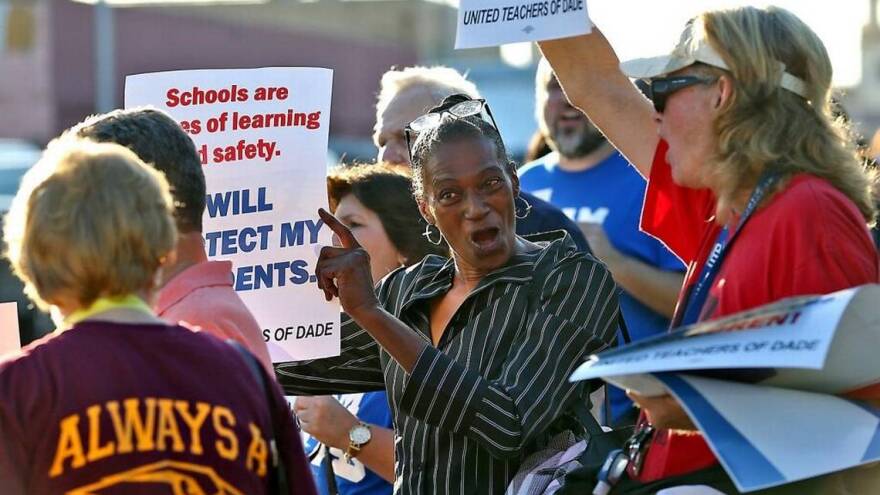
Where to find it: Lines 4361-4388
What they’re saying: “A minority leadership … is not a voice for the majority.” -House education committee chair Michael Bileca, a Miami Republican, to the the Miami Herald
“ARTICLE 1, SECTION 6 of the FL Constitution says, ‘The right of employees, by + through a labor organization, to bargain collectively SHALL NOT BE DENIED OR ABRIDGED.’ So much for that!” -Rep. Carlos Guillermo Smith, a Democrat from Orlando, tweeted about House Bill 25, the original source of this provision
“This monstrosity is a clear attempt to destroy our public schools while telling professional educators they simply are not welcome in Florida." -Joanne McCall, president of the the Florida Education Association, a statewide teachers’ union
Our analysis: This provision comes from House Bill 25, which passed the House but is unlikely to pass in the more moderate Senate and was derided by critics as an attempt at “union busting.” While the original iteration would have targeted a broader swath of public employee unions — excluding those representing law enforcement officers — the provision in House Bill 7055 only affects teachers.
Bileca has said that’s because House Bill 7055 is an education bill, and the state constitution says bills can only have a single subject. Including policy that affects unions unrelated to education would violate the single-subject rule, he argued.
However, the House has been openly hostile to teachers’ unions, particularly in light of FEA's legal challenges of the state's voucher programs. Corcoran called FEA’s ultimately unsuccessful effort to eliminate the tax-credit scholarship program “evil” during his first speech as House speaker.
Teachers’ unions in South Florida would be endangered if this requirement became law. The Herald reported that membership in the United Teachers of Dade is below the 50 percent threshold set forth in the bill.
The price tag: None.
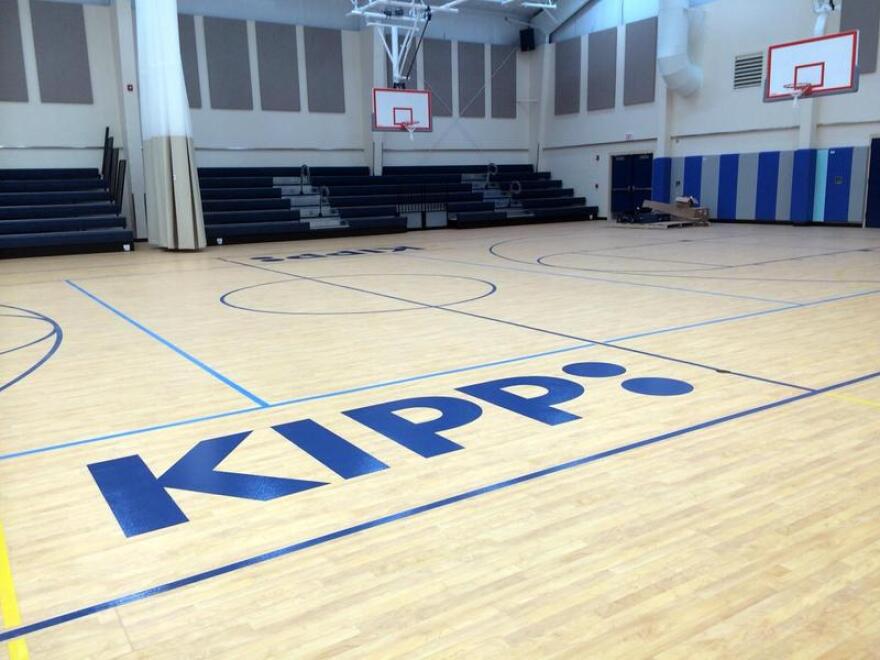
A risky compromise for charter school construction funding
In short: Creates a new formula for funding construction and facilities maintenance at charter schools, and eliminates the recent requirement that school districts share local construction dollars with charters, at least in the short term.
In detail: The bill would establish a minimum threshold for how much construction funding charters would get every year, automatically adjusted annually for inflation. If lawmakers didn’t provide enough in state funding to meet the threshold in any given year, districts would have to make up the difference with local tax dollars.
Under the bill, charter schools would be guaranteed to receive at least the same amount of money per student on average in future years as they get in 2018-19. House leaders have proposed providing $120 million in state construction funding to charter schools next year. So, in future years, they would get at least that much, and the number would grow with student enrollment and inflation.
Where to find it: Lines 4841-4902
Our analysis: School districts, including Miami-Dade County Public Schools, pushed for a compromise that would alleviate the burden of surrendering some of their share of $2.7 billion in local property tax revenue to charter schools. But if this goes through, charters will have a guaranteed floor for the amount of money they can spend on capital projects, with no guarantee that school districts won’t have to foot the bill.
In any given year, the state could fail to appropriate enough money to meet the threshold. Or the source of state capital funding, called Public Education Capital Outlay (PECO), could dry up; it’s considered unreliable because it’s derived from taxes on utilities, telecommunications and cable. And lawmakers could use their power over whether districts ultimately have to contribute to charter capital outlay to push for their cooperation with other legislative initiatives.
Alternately, the measure would be a win-win for charter proponents, who could claim goodwill for negotiating with districts while ensuring that their privately-run schools have a reliable funding stream for the foreseeable future. The current deal resulted in only $91 million for charters this year, with some getting nothing at all. Districts have varying obligations to pay back debts, payments that are accounted for before charters get a shot at whatever’s left over.
The price tag: The policy would cost nothing to implement. Its effect on the budget would vary every year.
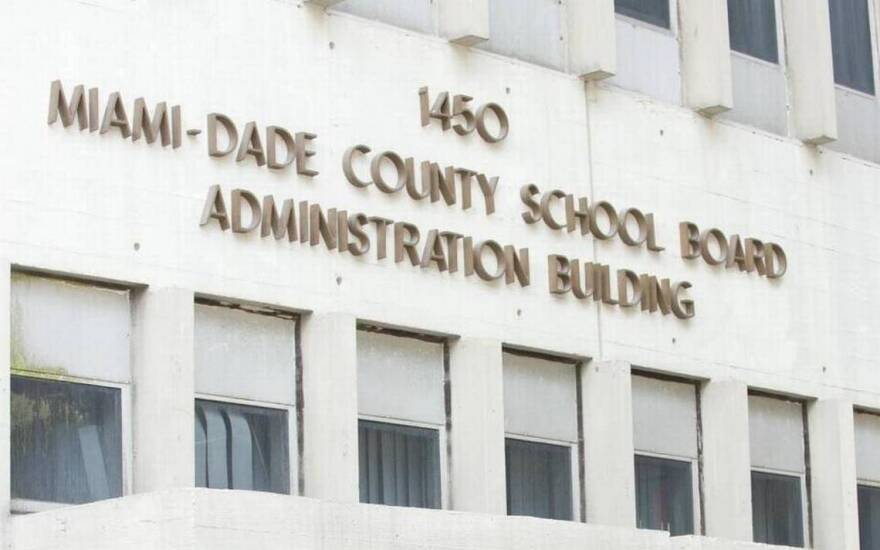
POLICY CHANGES FLYING UNDER THE RADAR:
Further limits on the power of school boards
In short: Establishes several provisions that further weaken school boards, which derive their authority over school districts from the state constitution.
A sampling of changes:
- Allows for the establishment of “district-independent autonomous schools.” Principals who have participated in an existing program allowing them more “autonomy” over their schools – including in hiring and budgeting decisions — would be allowed to manage multiple schools. Their mini-networks would be run by “independent governing boards,” rather than elected school boards, under a governance structure that’s similar to that of charter schools. (Lines 4203-4229)
- Empowers superintendents to establish schools that are governed by “independent governing boards” rather than school boards — again, a similar governance structure to that of charter schools. (Lines 674-690)
- Tightens rules on school board travel. The bill adds a new requirement that school board members get prior approval from their boards for any travel outside the school district if they want to collect travel expenses. It also says that if school board members want to travel outside the state, they must provide itemized lists of proposed expenses, and the public must have an opportunity to speak on their requests. (Lines 523-537)
- Empowers the Department of Education’s Office of Inspector General to investigate allegations of fraud or abuse against a school board made by the governor, presiding officers of the Legislature, chairs of relevant legislative committees or other members of the same school board. (Lines 512-517)
- Gives the state education commissioner more power to determine the reopening of schools during emergencies. (Lines 480-90)
- Requires large school districts to hire internal auditors. Current law says districts “may” hire an internal auditor. But the bill would change “may” to “shall” for districts with annual local, state and federal revenues of more than $500 million. South Florida’s three largest school districts would be implicated: this school year, Miami-Dade County Schools’ estimated revenues are $2.8 billion; Broward County Public Schools, $2.1 billion; and Palm Beach County Schools, $1.6 billion. The officers would also have enhanced responsibilities. (Lines 617-645)
- Empowers individual school board members in the local budget-making process. “An individual school board member may request and shall receive any proposed, tentative, and official budget documents, including all supporting and background information.” (Lines 614-16)
Our analysis: The Legislature has a long history of complaining about Washington overreach but has earned Tallahassee a similar reputation among local governments. School boards have a target on their backs, especially since more than a dozen sued the state over last year’s education mega-bill, House Bill 7069. School board members acknowledged they would likely suffer retaliation, a prediction that has arguably come to fruition with these provisions.
The changes allowing superintendents and principals to lead schools under separate, unelected boards seek to make school boards irrelevant. The new opportunity for legislators to order fraud investigations into school boards sends a message: we’re watching you.
The proposed new travel requirements indicate that some lawmakers are suspicious of school board members’ spending habits on the public dime. And the assertion of the state’s power over decisions about whether to open school buildings after emergencies suggests lawmakers might have been unhappy with local leaders’ handling of Hurricane Irma in September. The storm closed schools all over the state, including for seven school days in Miami-Dade, Broward and Palm Beach counties, and longer in the hard-hit Florida Keys.
Further, the empowerment of individual school board members — to trigger state probes and demand budgeting information — further boosts a small but increasingly powerful conservative school board member group established to rival the traditional Florida School Boards Association, which some lawmakers resent because of past litigation over vouchers. The relatively new Florida Coalition of School Board Members was founded by Erika Donalds, a Collier County school board member, Corcoran appointee to the Constitution Revision Commission and the wife of Naples Republican Rep. Byron Donalds.
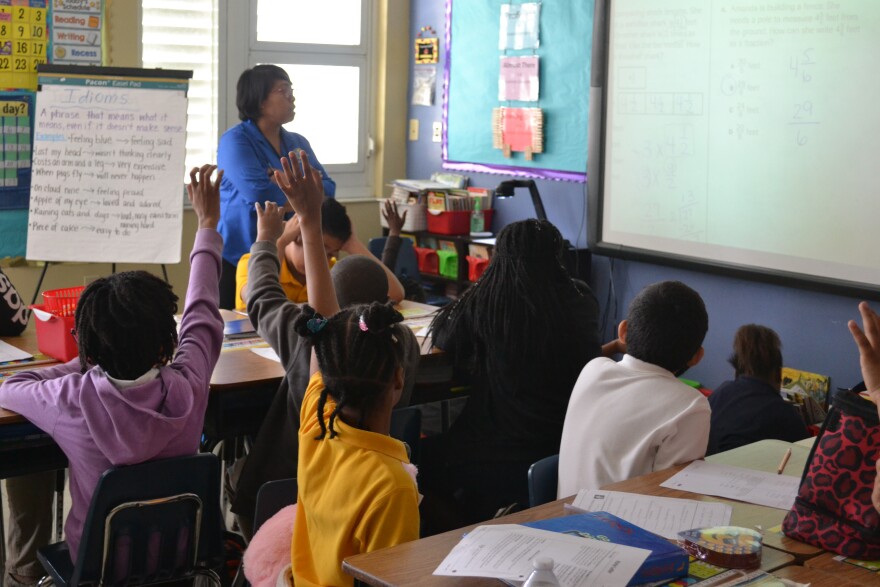
Strengthens charter schools
In short: Makes it easier to open new charter schools and harder to close them.
A sampling of changes:
- Makes it harder to close a charter school. The bill would require districts to produce “clear and convincing evidence” that a school’s charter should be terminated. Current law allows districts to close charters if they violate the law, but the new bill would loosen that, requiring instead a “material” or more significant violation of law. (Lines 1022-1035)
- Empowers judges, rather than school boards, in hearings over closing charters. Under current law, a district sponsoring a charter school can hold a hearing and then make a final determination about closure. Or, an administrative law judge can preside over the hearing and make a recommendation that would be considered by the district. The bill would assign all hearings to administrative law judges, and the judges’ orders would be final. Similarly, if there was a dispute over the cost of goods and services provided by the school district to charter schools, an administrative law judge would, again, have final say. Under both scenarios, the losing party would have to pay the prevailing party’s attorneys’ fees. (Lines 1037-1067 and 1168-1187)
- Lengthens charter schools' initial contracts. Current law says the initial term of a charter should be four to five years. The new bill would make it five, plus a planning year. (Line 938)
- Changes standards for designation of “high-performing charter schools.” Under state law, “high-performing charter schools” are easier to replicate, harder to close and have special privileges, such as being able to increase enrollment higher than what’s delineated in their charters. Currently, a charter school that earns two As and no grade lower than a B in three years is designated “high-performing.” The bill would also add schools that have earned two consecutive As to that definition. Also, current fiscal health requirements would apply only for the most recent two years, rather than three, if the charter had an A for the last two years. And charter companies would be able open two new replicas, rather than one, of a “high-performing” charter school anywhere in the state each year. (Lines 1196-1197, 1211-1214 and 1245-1246)
- Rolls over funding under last year’s “schools of hope” law — available to high-performing charter schools that locate in areas where traditional school are struggling — for up to five years, if it is not spent during the year it was appropriated. (Lines 1260-1264)
Analysis: Republican House members are avid supporters of charter schools, and some of them have personal and financial ties to the lucrative industry. Corcoran’s wife, Ann, founded a charter school. Bileca leads a charter school foundation. House K-12 education budget committee chair Manny Diaz, Jr., a Hialeah Republican, is chief operating officer of an unaccredited college run by the state’s biggest charter management firm, Academica.
The price tag: None.
New, streamlined accountability standards for private schools receiving vouchers
In short: Creates a single set of accountability standards for private schools participating in state-sponsored voucher programs.
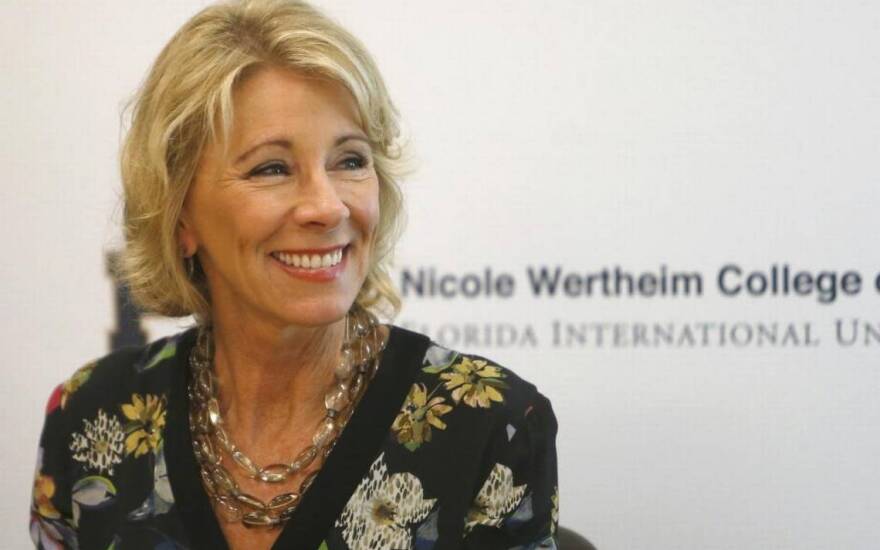
In detail: The new requirements include ramped-up site visits from the Department of Education, stricter oversight of health and fire safety compliance and new background check requirements for school owners and employees.
Where to find it: Lines 2644-3147
Analysis: Democrats have said they support these changes. That’s why they’re in the bill. Republican leaders want to at least appear like they’re appealing to everyone.
The push for stronger accountability largely followed an investigative report by the Orlando Sentinel. Read it here.
The price tag: $950,000 to support the department’s greater oversight requirements, plus $250,000 for a study of voucher recipients’ performance on national norm-referenced tests.
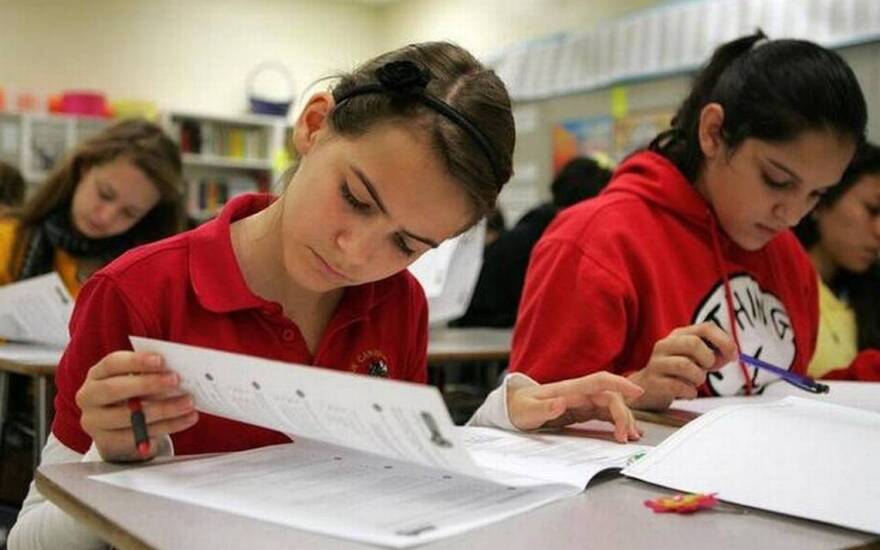
THE BEST OF THE REST:
- Expands lobbying ban to include appointed superintendents. State law already says elected superintendents may not be paid to lobby their school districts for two years after leaving office. The bill would add appointed superintendents to that. In South Florida, Miami-Dade, Broward and Palm Beach counties have appointed superintendents. Monroe County had an elected superintendent until 2010 when voters approved a referendum to change to an appointed superintendent. (Lines 330-331)
- Requires districts to create a fiscal transparency tool that compares how much money is spent in each school to that school’s performance and compares the results to similar districts. (Lines 3468-3588)
- Creates new procedures for dealing with school districts in financial emergencies, including the requirement that “the salary of each district school board member and district school superintendent … shall be withheld until the conditions are corrected.” (Lines 3680-3684)
- Allocates $5.6 million to pay for paper, rather than computer-based, state testing for seventh and eighth graders. (Lines 3443-3445 and 4912-4913)
- Allocates $550,000 to pay for homeschool students’ instructional materials when they take dual enrollment classes at colleges or universities. (Lines 3341-3342 and 4917-4918)
- Expands the approved uses of Gardiner Scholarships, vouchers for students with disabilities. Under the bill, tuition for “part-time or full-time enrollment” in private schools would be allowable. Currently, eligible tutors are people with teaching certifications, but the bill would add people with bachelor’s or graduate degrees in the subject areas they are teaching. (Lines 1359-1479)
- Expands how districts can use federal Title I money. House Bill 7069 limited how much power district administrators have over how to allocate Title I funding to schools — traditional public and charter. House Bill 7055 would loosen the new rules, allowing districts to target the neediest schools by using some Title I funding for before- and after-school programs, longer school days, instruction during the summer and “wrap-around” social services like health care or behavioral therapy. (Lines 4276-4321)
- Includes a variety of changes benefiting or recognizing people in the military along with veterans, their spouses and children. They include giving kids from Florida who are living elsewhere because their parents are active-duty military officers preference for enrollment in Florida Virtual School (lines 1283-1286), allowing military service to count toward occupational licensure requirements in some cases (lines 419-446) and requiring instruction on “the sacrifices that veterans and Medal of Honor recipients have made serving our country” (lines 3255-3261).






